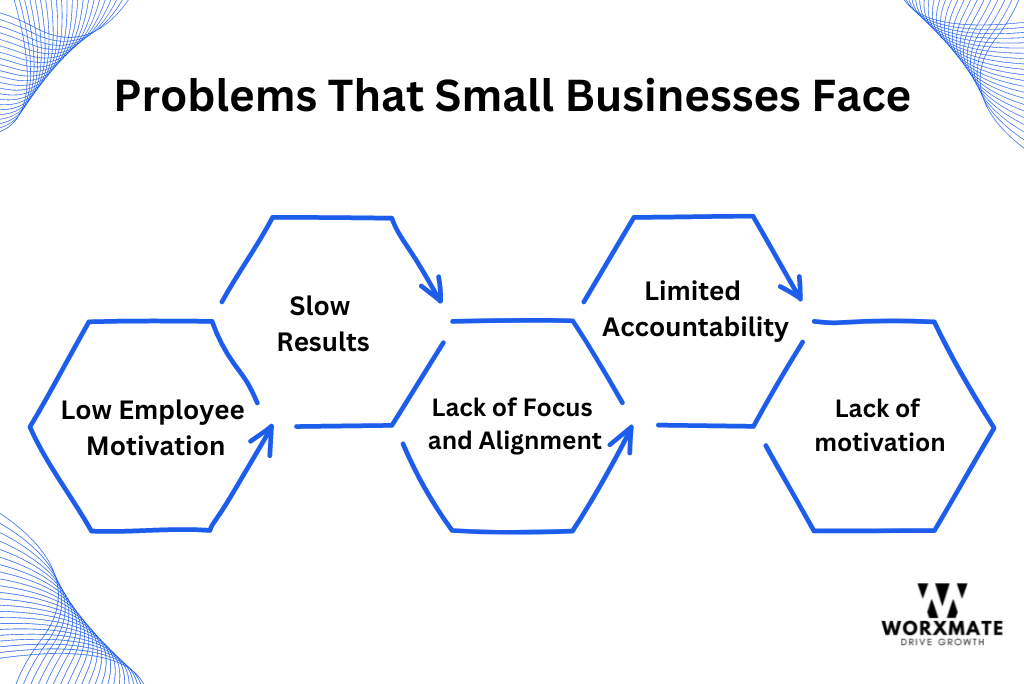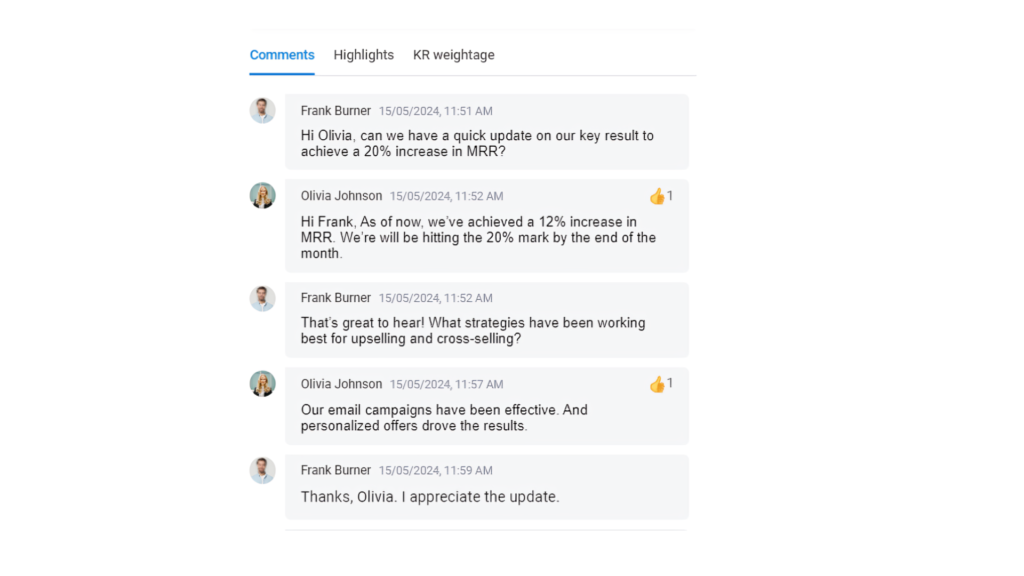In all organizations, the biggest challenge that everyone must face is goal setting and performance management, which is complex. Small businesses take time to establish themselves to have a better reach and face a lot of challenges.
They mostly lack at setting their goals, have better coordination and communication amongst team members. They fail to measure their success and fail to cope up with the changes.
According to a study by Gallup, only 87% of employees say that leadership doesn’t communicate properly with the rest of the organization, and only 78% of employees don’t feel that leaders have a clear direction for the organization. This is where OKR implementation for small businesses helps organizations to solve these kinds of issues.
In this blog, we will explore problems small businesses face and various aspects of OKR implementation designed especially for small businesses, thereby unlocking their potential for growth and success.
Problems That Small Businesses Face
Working with limited sources and achieving required strategic planning and prioritization of work. This requires a lot of focus and alignment within the teams and departments.
Small businesses often struggle with maintaining alignment and focus. Accountability is one more aspect where small businesses lack. Letting all employees know what is expected from them can improve their performance, which helps company overall growth.
Keeping all employees motivated is also a challenging task for businesses, teams who are not motivated may delay in delivering results which hampers the overall business growth. This is where OKRs help small businesses to achieve their goals.

Why is OKR implementation for small businesses important?
Small businesses have limited resources and needs to optimize their resource allocation by preventing teams from straining themselves and allowing a focused effort on the most important activities.
OKRs focuses on measurable key results that helps businesses to monitor their growth and achievements and provides a data driven approach which becomes useful for small businesses to make decisions based on accurate data and adjust their strategies accordingly.
To successfully run a business proper execution of ideas is crucial this is where OKR methodology helps businesses to achieve excellence in execution and reach their goals effectively.
Read More: How to Avoid the 5 Common Pitfalls in OKR Implementation
Tools to Manage OKRs:
-
Goal Tracking:
One of the most important things while chasing the goals is keeping a track of it and taking appropriate decisions based on the business environment. According to a study 45% people don’t track their goals, this is most important factor why they don’t achieve goals.
Businesses can use goal tracking tools so that they can prioritize activities and set the pace accordingly. It helps businesses to analyse where are they and what corrective actions need to be taken to reach the goals.
![]()
-
Collaboration:
Effective collaboration is essential for small businesses, according to a study Communication and collaboration tools increase employee productivity by over 25%.
Finding the right tools that can help organizations to work together and collaborate can improve the work efficiency and bring teams close to achieve goals. All businesses must establish a smooth interaction between the cross-functional teams because work dependencies in different departments.

-
Reporting and Analytics:
Tracking progress in only effective when businesses can analyse the data and take data driven decisions. Analytics and reporting tools are essential for small organizations because they help in understanding how well they are progressing towards their goals.
According to a study Data-driven organizations are 23 times more likely to acquire customers. This data driven approach enables small businesses to identify trends and find out areas of improvements.
 OKRs and Company Culture
OKRs and Company Culture
OKRs encourage transparency by making objectives at all levels visible to all employees. It helps all departments to collaborate with each other and communicate properly. OKRs play an important role in developing a culture where teamwork is valued and impact company culture and foster a sense of purpose and teamwork.
Tips for Successful OKR Implementation
- Keep it simple: Start with simple and clear objectives and key results to avoid overwhelming teams.
- Encourage Collaboration: OKRs work best when there is open communication and teamwork and encourage cross-functional collaboration.
- Celebrate Success: Celebrate achievements as you reach key milestones. This helps build morale and motivates the team.
Conclusion:
Implementations of the OKR framework in small organizations has the potential to transform the process of goal setting by using a systematic structure that improves collaboration, alignment, focus and results.
Small businesses can successfully incorporate OKRs into their corporate culture by educating teams, setting clear objectives, identifying key results, cascading objectives, conducting frequent check-ins, promoting transparency, providing resources, acknowledging accomplishments, learning from setbacks, and evaluating and improving the process.
This strategic approach eventually propels small businesses’ success and growth by fostering alignment, focus, transparency, and accountability.
Power your OKR journey with Worxmate – the all-in-one OKR software built to help small businesses align goals, track progress, and achieve measurable success.
Drive Growth: Our OKR Consulting Can Elevate Your Business!
To learn more about: common mistakes to avoid while implementing OKRs



